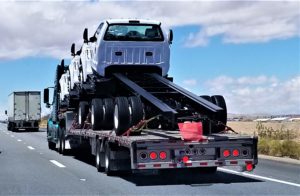
An alliance of farmers and car manufacturers has launched legal action against the Environmental Protection Agency (EPA) in response to introducing strict new regulations on vehicle emissions in April 2024. These rules aim to accelerate the adoption of electric vehicles (EVs) as part of a strategy to achieve tougher environmental goals.
“Farmers and automakers challenging EPA rules have our support,” said Matt Solak, executive director of the Pacific Propane Gas Association (PPGA). “They depend on fossil fuels, and rushing to electric vehicles risks their future. We advocate for a balanced path forward for all.”
Regulations and Objectives
The EPA’s new rules set ambitious targets, requiring 56% of all new vehicle sales to be electric by 2032. This move is part of a broader initiative to reduce carbon emissions. The regulations also aim to reduce nitrogen oxides and particulate matter emissions, improving public health and air quality.
Legal Challenge and Key Arguments
The lawsuit, supported by organizations, including the American Farm Bureau Federation and National Corn Growers Association, represented by the American Petroleum Institute (API), argues that the EPA has exceeded its legal authority. The plaintiffs say that Congress has not given the EPA the power to force big changes to the rules for vehicle technology. They say that the rules will have a big effect on the economy, especially in fields that depend on traditional internal combustion engines.
Supply Chain and Economic Concerns
Critics of the EPA’s rules say that the fast switch to electric vehicles will put a strain on current supply chains and make things more expensive for both consumers and manufacturers. They also make people worry that the rules could give foreign rivals, especially Chinese manufacturers, an important advantage in the American market. Some individuals believe that a less rigid method, like switching to renewable fuels, could lower emissions without taking such drastic steps.
Impact on Agricultural and Automotive Sectors
The automotive industry, represented by organizations like the National Automobile Dealers Association (NADA), is worried that the regulations will lead to job losses and higher operating costs. In the same way, agricultural groups are worried about how the regulations might affect the cost and supply of important vehicles. According to them, the rules might make it harder to get important farming tools and cars that mostly use regular fuels.
Balancing Economic and Environmental Goals
The EPA supports its policies by saying that switching to electric cars is necessary for long-term economic and environmental gains. The agency says that the new guidelines will save people money in the long run by lowering fuel and maintenance costs. They will also help slow down the effects of climate change. But the legal case shows how much people continue arguing about balancing environmental policy with economic effects.
Sources: Environment + Energy Leader, Breitbart, NADA


